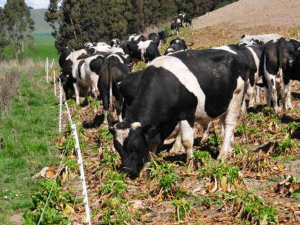Environment Southland (ES) is reminding farmers to ensure their resource consent applications for winter grazing are in.
The reminder comes on the day updated regulations for intensive winter grazing come into effect, in advance of the 2023 winter grazing period.
The regulations are set out in the National Environmental Standards for Freshwater and seek to improve intensive winter grazing practices.
ES is encouraging farmers to undertake their winter grazing in a compliant way. This will either be by meeting all permitted activity criteria outlined in the rules, or to obtain the necessary land use consent or deemed permitted activity authorisation (available for intensive winter grazing on land between 10 or 15 degrees where all other permitted activity criteria are met).
ES integrated catchment management general manager Paul Hulse says the Council’s consents team continues to process applications for winter grazing land use consents or deemed permitted activities.
“Our focus continues to be on working with the rural sector to encourage compliance with the existing rules for winter grazing by providing advice and education on the three pathways available,” he says.
Resource consent and deemed permitted activity application forms are available online, and will be issued for up to five years and up to 24 months respectively.
The cost for a deemed permitted activity application is $500 (if all information is provided). An application deposit for a resource consent for winter grazing is $1,725.
While the Freshwater Farm Plan system may not be fully in place for winter 2023, ES has established an additional pathway, the deemed permitted activity, for farmers to have certainty with winter grazing rules.
From early 2023, Freshwater Farm Plans will begin being introduced, with Southland one of the first regions in the rollout.
Monitoring will continue to be undertaken as it has been over recent seasons, with a focus on high-risk activities and any investigations into non-compliance or enforcement will follow ES’s enforcement and monitoring policies.
“If non-compliance with the rules is identified it will go through our standard investigation process and any outcomes are not predetermined,” says Hulse.
He says the Resource Management Act provides for a range of regulatory responses, but focus will be on encouraging compliance as opposed to fines.
“Until we have a better understanding of the number of farmers who may need a consent, we haven’t finalised any monitoring plans for winter 2023 but planning is underway and being tailored as more information comes to hand.”



















